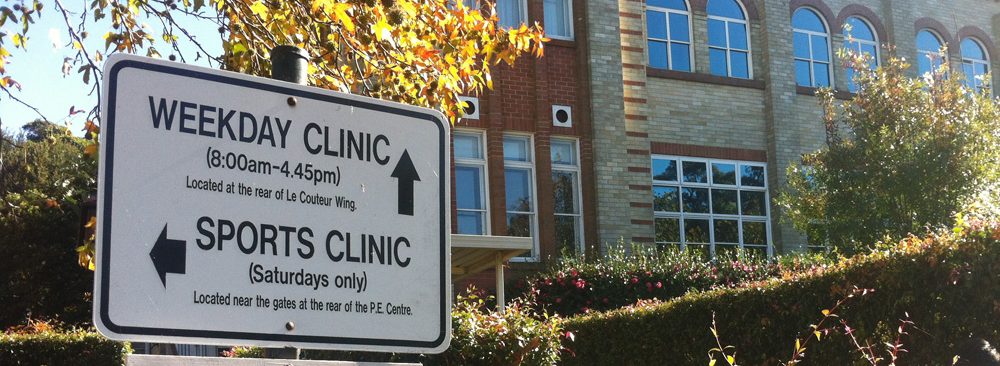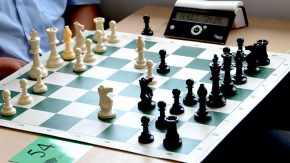Pre-Season Concussion Testing
Concussion has certainly been in the news again lately with former Australian Rugby League player Ian Roberts speaking out about brain damage from contact sports on Channel 7’s Sunday Night Program two weeks ago. I listened to Hack on Triple J as well when Tom Tilley spoke to Ian and neurosurgeon Professor Gavin Davis about the risks involved in certain kinds of sport, and former Rugby Player Mario Fenech has also admitted to having brain damage after years of being a professional Rugby League player.
Fairfax Journalist Peter FitzSimons, sporting personality Matty Johns and Triple M presenter and NRL legend Mark Geyer are also talking about it on their programs as well as raising awareness and taking part in some of the research that doctors at Deakin University are currently undertaking in regards to concussion in contact sports.
A concussion is an injury to the brain usually caused by a blow to the head that results in temporary loss of normal brain function. A person does not need to lose consciousness to suffer a concussion. Because the brain floats inside the skull cushioned by the surrounding spinal fluid, a concussion occurs when an abrupt blow to the head, or even a rapid deceleration causes the brain to bounce against the inner wall of the skull. There is potential for tearing of blood vessels, pulling of nerve fibres and bruising of the brain. While concussion can occur in any sport, we see more incidents during Rugby and Football season.
Symptoms
Common symptoms include headache, vision disturbance, dizziness, vomiting, confusion, memory loss, ringing in the ears and loss of balance.
A concussion can effect memory, judgment, reflexes and muscle coordination.
Behavioral changes such as inappropriate emotions, irritability, feeling nervous or anxious may be seen while poor attention, sensitivity to light and noise, lack of concentration and sleep disturbance can also be symptoms of concussion.
During a game, the rule is that if a concussion is suspected then the player is removed from play and must not be allowed back on. If in doubt – it’s best to advise that player to sit it out and seek medical attention.
Pre-Season Concussion Testing
At Newington we take concussion seriously. For the past six years we have been doing pre-season concussion testing on all Rugby players and 1sts and 2nds Football players.
This involves a paper and pen, 90 seconds and a Digit Symbol Substituting Test (DSST). Basically the boys have to match symbols to numbers and get as many done as they can in the time allotted. If a boy suffers a concussion he will repeat the test in the clinic the following week to compare. This test is a useful tool for the doctor but must be used in conjunction with player symptoms and balance testing.
This year at Newington we will be trialing online concussion testing for the 1sts and 2nds Rugby teams. This is a computer card game that measures the athletes’ reaction time, concentration and memory before concussion, allowing doctors to compare the result to the same test done when the athlete has concussion. Hopefully we will be able to offer this to more teams next year.
Management
Adolescents (10 – 18 years) need a conservative approach when tested for concussion because studies have shown that their brains take longer to recover. The medical practitioner responsible for treatment will advise on how long the player should rest from physical activity. In some cases shorter school days and/or reduced school/computer work may be required to ensure mental rest, which is important.
The player who has been told he has a concussion should report to me when next back at school and I will ensure coaches and relevant school staff are aware of his condition.
Once clinical symptoms have completely resolved, a graduated return to play is undertaken followed by a medical clearance. The player can then commence a return to sport.
The Graduated Return To Play (GRTP) program
Each stage of the GRTP takes at least 24 hours, with a requirement that the player remains symptom free after each stage. If symptoms develop then the player rests for 24 hours and starts that stage again.
- Stage 1 – Rest and Recovery determined by the medical practitioner
- Stage 2 – Simply walking, swimming or stationary cycling at a low intensity
- Stage 3 – Progress to running drills
- Stage 4 – Complex training drills – no contact. Start resistance training
- Stage 5 – Medical clearance obtained to return to full contact training.
At our seven home games this year where the 1sts Rugby are playing at Stanmore there will be a doctor specialising in Sports Medicine on duty from 10:00 AM to 5:00 PM.
Dr Ameer Ibrahim Sports Doctor who has been with the College for the past six years has undertaken a new position as a doctor for the the Sydney Roosters NRL team so we welcome Dr Paul Mason from Sydney Sports Medicine Centre at Olympic Park. Dr Mason and I will work from the First Aid room just inside the big gates on Newington Road at each of the Rugby home games.
Let’s hope you don’t need to see us, but in case you do, you know where we are.
Ms Margaret Bates
College Nurse






